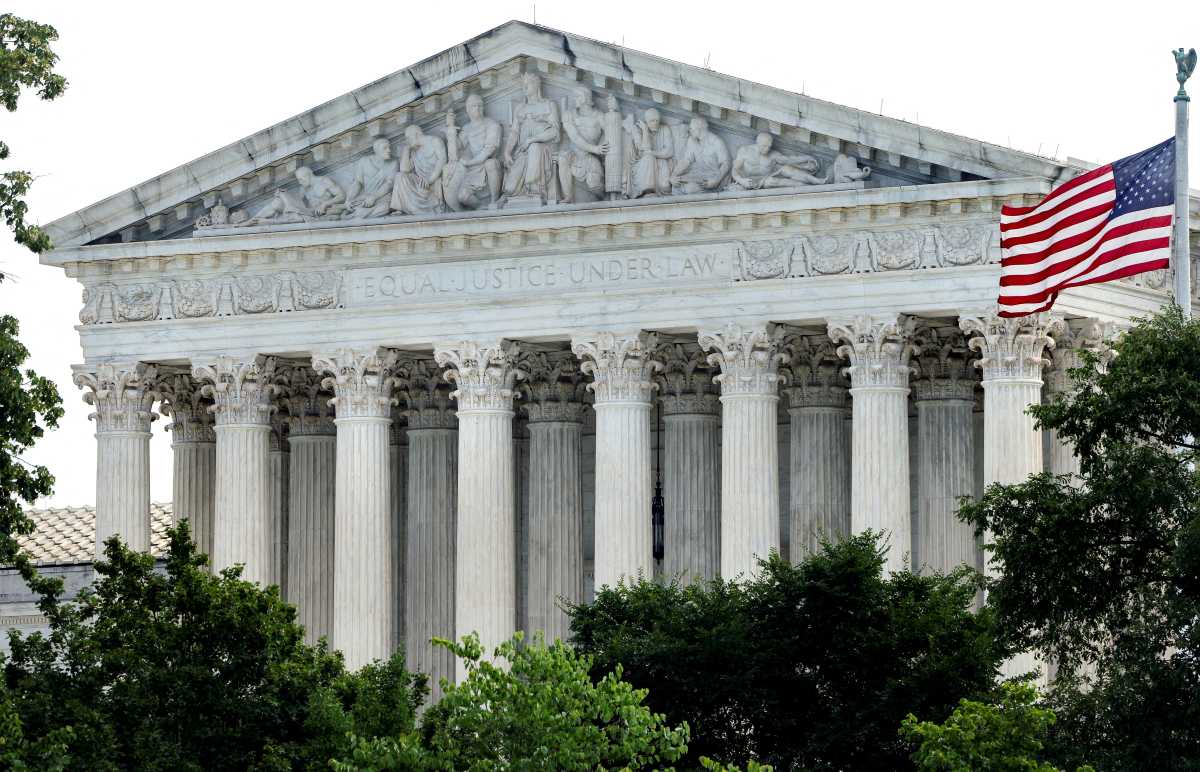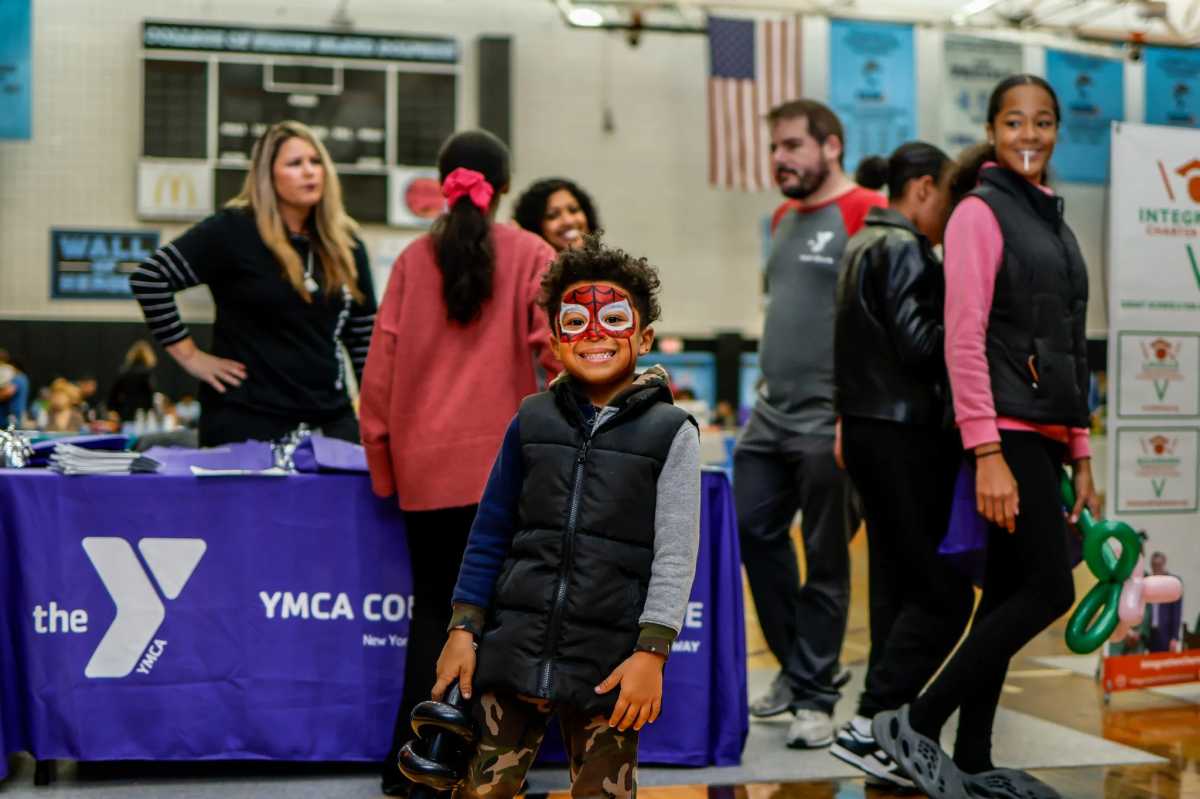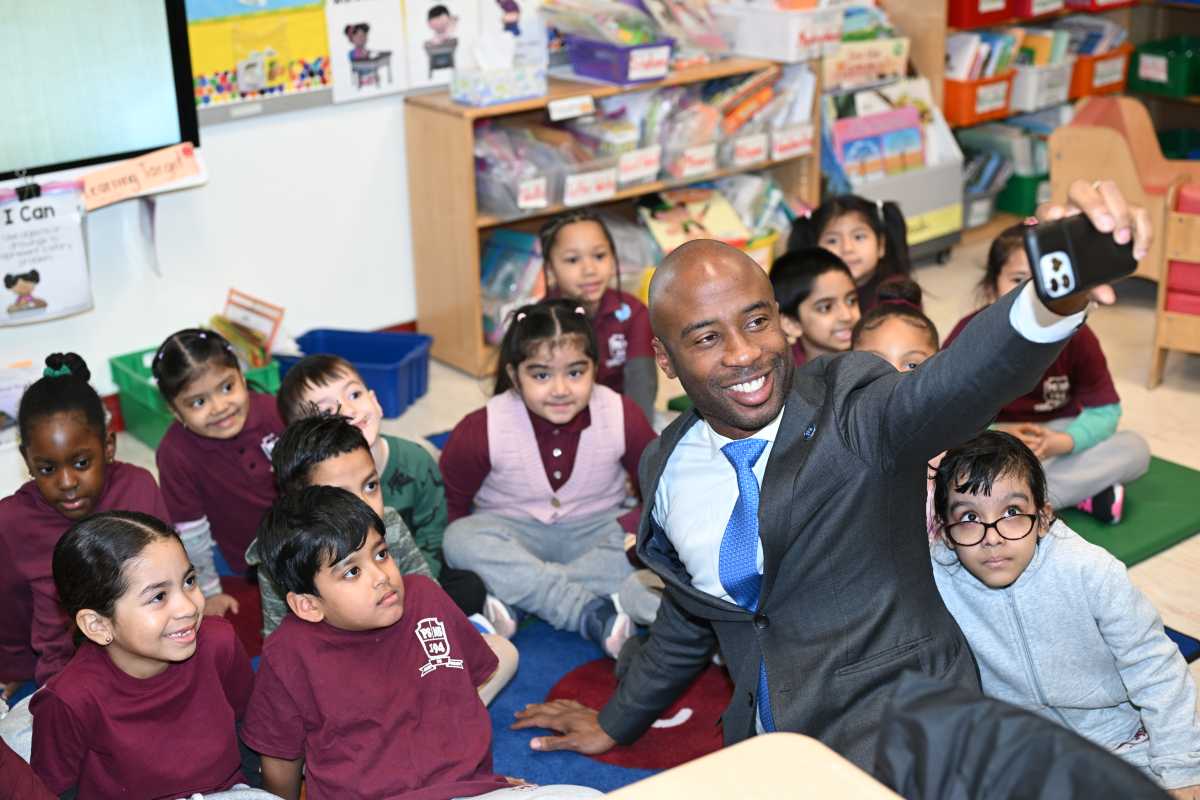The US Supreme Court’s ruling that Maryland parents could opt out of LGBTQ-inclusive lessons has put renewed focus on the role of New York City’s Department of Education (DOE) in protecting rights for LGBTQ students.
The ruling, which was decided along ideological lines, allowed parents to use religion as an excuse to remove students from lessons with LGBTQ-related themes. While the ruling was initially restricted to the specific case of Maryland schools, the court’s broad language appears to allow challenges across the country on religious grounds, according to legal experts.
In a dissent joined by the two other liberal justices, Justice Sonia Sotomayor said the ruling “threatens the very essence of public education” by granting parents more power than teachers and eliminating diverse viewpoints.
“Requiring schools to provide advance notice and the chance to opt out of every lesson plan or story time that might implicate a parent’s religious beliefs will impose impossible administrative burdens on schools,” Sotomayor added.
New York City offers resources for LGBTQ students in all grades and many schools and teachers include materials with LGBTQ characters or themes as part of the standard curriculum. While the city’s curricula are not immediately under threat, the ruling leaves them vulnerable to challenges from parents.
LGBTQ advocates and experts also contend that the ruling could create an atmosphere of distrust and fear around advancing new LGBTQ-inclusive policies, even where there has not yet been a challenge.
Amy Leipziger, director of the Free To Be Youth project at the Urban Justice Center, told Gay City News that the Supreme Court’s decision indicates a concerning lack of interest in including LGBTQ voices in education.
“The idea of LGBTQ-inclusive curricula is the idea that recognizing voices that were not previously the dominant narrative should be a part of our broader understanding of how we share information,” Leipziger said. “That’s where the value comes from.”
Inclusivity in education
Leipziger said depriving children of information and knowledge is never the solution.
“Children are naturally curious,” Leipziger said. “They’re absorbing information. So if you’re pulling a kid out and saying, ‘You shouldn’t know this,’ kids are going to be like, ‘Well, why? Why not?’”
“You’re basically telling children that we’re not sharing knowledge; we’re not sharing information to let children become their own critical thinkers,” Leipziger added.
State Sen. Brad Hoylman-Sigal, who made history recently as the first openly gay Democratic nominee for Manhattan Borough President, told Gay City News that the ruling was dangerous but expressed confidence in the NYC DOE.
“The bigoted and short-sighted ruling by the Supreme Court will hinder the ability of public schools to teach children fully about the world around us and foster understanding and acceptance, which is of growing concern as more LGBTQ students than ever report bullying and harassment in the classroom,” Hoylman-Sigal wrote. “Notwithstanding the ruling, I trust the NYC public schools will continue to teach a broad curriculum that recognizes the diversity of our communities.
Melanie Willingham-Jaggers, executive director of the NYC-based education nonprofit GLSEN, said in a written statement that limiting certain students’ access to inclusive education harms outcomes for all students.
“Hiding the truth from students interferes with educators’ efforts to make sure the next generation can succeed in an increasingly diverse world,” Willingham-Jaggers said. “Inclusive classroom instruction and access to books about different life experiences are critical to ensuring that students feel seen in their school community and are prepared to participate in a multicultural society alongside peers from different backgrounds, identities, and family structures.”
Support from NYC
DOE Chancellor Melissa Aviles-Ramos said in a written statement that the DOE would not change any policies as an immediate result of the ruling.
“As the leader of this nation’s largest school district, I am proud to support each and every one of our students and to make sure they feel safe, seen, and valued for who they are,” Aviles-Ramos wrote. “Today’s news does not change that fundamental promise.”
DOE previously confronted a challenge from Community Education Council (CEC) District 2, which advises the DOE for part of lower Manhattan, when the council passed a resolution asking the city to review its policies allowing transgender girls to compete in school sports. DOE refused to implement the resolution and the majority of the council members in support of the resolution were ousted in elections in mid-June.
Gavin Healy, a member of CEC District 2 who opposed the resolution and recently won reelection, told Gay City News that the DOE should continue to reaffirm its commitment to LBGTQ students and education.
“The DOE needs to be more vocal,” Healy said. “It needs to be speaking up to say, ‘Hey, this is a safe space. This is a sanctuary. This is a place where you’re going to be protected, you’re going to be seen, you’re going to be affirmed.’”
“The DOE needs to support young LGBTQ students and really double down on those supports, really keep repeating the message of inclusivity,” Healy added.
But while NYC DOE has consistently expressed support for LGBTQ students, the city’s “bubble” stands in contrast with the state Education Department (NYSED), which has to contend with more conservative policies upstate, Leipziger said.
NYSED did not make a public statement about the Supreme Court’s ruling, while Aviles-Ramos released her statement less than three hours after the court published its opinion.
NYSED did not respond to Gay City News’ request for comment.
Leipziger said New York City must continue to protect LGBTQ-inclusive lessons not because of ideology or politics but because of the benefit for all children.
“We want to recognize the value of the differences in our culture, in our communities, so that kids grow up saying, ‘It doesn’t matter that he or she or they look different than I am, or have different feelings about who they are; what matters is we’re going to transcend those,’” Leipziger said.
Healy, who is a former lawyer, said he is worried the ruling’s broad language will create a “climate of fear” and encouraged the DOE to continue expanding its efforts.
“If we’re picking and choosing which aspects of society and culture we are going to allow our kids to be exposed to, I think that’s dangerous,” Healy said.
Leipziger said New York City and state should reaffirm its commitment to providing all students a quality education.
“It’s a really great opportunity for state electeds, for city electeds, for the administration itself to say we believe that the best thing we can do for our kids is ensure that they have access to a free and appropriate public education,” Leipziger said.





































